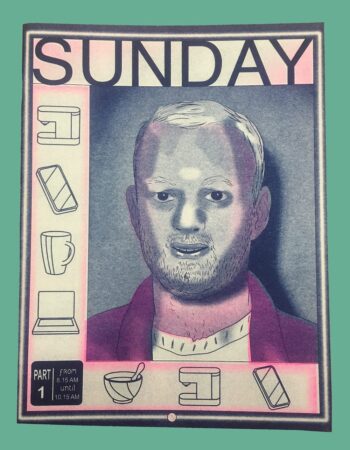Today at the Journal, you'll find two excellent pieces of writing to prepare you for the weekend. Gear up first for a superbly detailed obituary on Annie Goetzinger by Cynthia Rose:
Goetzinger's lasting importance resides not in her style or politics – it derives from her very existence and example. When there was only a handful of women to watch, she showed what could come of painstaking research and careful choices. For her, the key to retrieving any past was always a person, an individual with a specific imagination. She helped win us access to worlds as different as those of Chloe Cruchaudet's Mauvais Genre (2013), Agnes Maupré's Chevalier d'Eon (2014), Penelope Bagieu's California Dreamin' (2015), Virginie Augustin and Hubert's Monsieur Désire? (2016), and Isadora by Julie Birmant and Clément Oubrerie (2017).
Catch your breath. Now, take a look a, Tegan O'Neil's detailed examination of Sugar Town, the latest comic from Hazel Newlevant.
The virtue in a book like Hazel Newlevant’s Sugar Town lies in the ability of a cartoonist like Newlevant to illustrate the interior processes native to a social relationship which many if not most readers may never experience or even approve. Rather than explain polyamory with charts and graphs and blockquotes from The Ethical Slut Newlevant shows the reader precisely what the process entails – and more important than the “what,” the “how” of how the participants conceptualize themselves as ethical actors within nontraditional relationships.
That may very well be the most vital aspect of the book in terms of illustrating just how these relationship mechanics work: Newlevant is preoccupied above all in ensuring that all her romantic entanglements are ethical. That forms the motor for the book’s major conflict, an internal struggle within the protagonist (also named Hazel, coincidentally!) to make sure that her own actions are always within the bounds of informed consent for all parties. This requires, as you can imagine, a great deal of work.
 Elsewhere? I don't know. Did you read any good blogging yesterday? I didn't. I didn't try, though, which is sort of on me. Snow didn't keep me from work, but playing in the snow definitely kept me from using my free time to trawl blogs. I did read the first issue of Sunday, by Olivier Schrauwen. It's an extremely funny comic, almost 60 pages long, printed in pink and blue, and it consists of a man getting up in the morning and, amongst other things, masturbating, trying to figure out what to text his significant other, getting a song stuck in his head, taking a bath and procrastinating on a freelance gig. My favorite part is when he mildly injures his groin because he thinks that doing a James Brown split is easy.
Elsewhere? I don't know. Did you read any good blogging yesterday? I didn't. I didn't try, though, which is sort of on me. Snow didn't keep me from work, but playing in the snow definitely kept me from using my free time to trawl blogs. I did read the first issue of Sunday, by Olivier Schrauwen. It's an extremely funny comic, almost 60 pages long, printed in pink and blue, and it consists of a man getting up in the morning and, amongst other things, masturbating, trying to figure out what to text his significant other, getting a song stuck in his head, taking a bath and procrastinating on a freelance gig. My favorite part is when he mildly injures his groin because he thinks that doing a James Brown split is easy.
Schrauwen's comics, like Kevin Huizenga's and most Image Comics, don't tend to hold up well when they're discussed purely in plot terms. In the first case, it's because what happens is less important than the way the artist uses cartooning to manipulate the way that the communication of ideas function between audience and narrative, and in the second case, because most Image Comics have dumb plots that make you feel embarrassed that you've read them when you hear those plots said aloud. Schrauwen's work doesn't sound that exciting when listed it as I did above--and it shouldn't. The acts that his main character (yet another of Schrauwen's supposed family members, this one is named Thibault Schrauwen) takes are as routine as it gets, and while Schrauwen gets the jokes in, it's mostly within a realistic context. What makes Sunday such an engaging piece of work is the way Schrauwen's transitions create constant moments of goofineess, the way he takes an endlessly banal series of situations--a man climbing the stairs, for example--and ladles them with comedy simply by the moments in time he chooses to draw. The joke is just the simple silliness of regular life, the way a solitary man in a robe looks as he strides around his morning, trying to remember lyrics, or trying to entertain a cat. It's in the way he cuts an average orgasm against another man engulfing a pastry. Over and over, Sunday is the comedy of regular life, but done in such a succinct, direct fashion that it in no way reads as cruel, or laboriously produced, or overwrought. Look at the plain faced smile on that cover--it's just a guy ready to attack the day. But first, he's got about a hundred boring things to do. I feel ya, Thibault.






